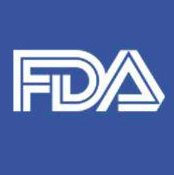In today's FDA Voice blog post, U.S. Food and Drug Administration (FDA) officials Michael Taylor and Howard Sklamberg discussed how the Agency is "reinventing" itself in conjunction with the Food Safety Modernization Act (FSMA) and unveiled the Operational Strategy for Implementing the FDA Food Safety Modernization Act.
Taylor, FDA deputy commissioner for Foods and Veterinary Medicine and Sklamberg, FDA deputy commissioner for Global Regulatory Operations and Policy explained that the FSMA "grew out of an understanding that foodborne illness is both a significant public health problem and a threat to the economic well-being of the food system." They said the law directs a comprehensive overhaul of our food safety system, using three broad themes:
- Advancing Public Health – by focusing on prevention of food safety problems through broad, consistent industry implementation of modern preventive practices.
- Leveraging and Collaborating – by working in close collaboration with other government agencies (federal, state, local, tribal and foreign), the food industry and other stakeholders to make the best use of all available food safety resources.
- Strategic and Risk-Based Industry Oversight – including clear FDA guidance on standards; outreach and technical assistance to facilitate voluntary compliance; and the use of adaptable, risk-based inspection and compliance strategies that focus on public health outcomes and the effectiveness of overall systems of prevention.
The blog post continued:
Since January 2013, we have proposed seven new rules to establish the comprehensive framework of modern, prevention-oriented standards mandated by FSMA, covering the production and transportation of human and animal foods, whether produced in the U.S. or overseas. There is a lot of work to do to get these standards right, and we are very focused on that work.
At the same time, however, we must be laying the foundation for the next phase: effective and efficient implementation of the new standards. This requires fundamentally new approaches to collaboration and oversight to achieve high rates of compliance with FSMA’s prevention standards. And from a public health and public confidence standpoint, this is where the rubber meets the road.
We are thus pleased to be sharing with our partners and stakeholders a document [Operational Strategy for Implementing the FDA Food Safety Modernization Act] that captures in broad, high-level terms our current thinking on strategy and guiding principles for implementing the produce safety rule, the preventive controls rules, and FSMA’s new import tool kit, after the final FSMA rules are issued in late 2015 and early 2016. We are making this available as the springboard for discussion with the entire food safety community. And we know discussion is needed, because the strategy that will make FSMA a success requires significant change in how we at FDA do our work and how we work with our partners.
For example, FSMA calls for a national integrated food safety system that builds on FDA’s longstanding collaboration with state governments on food safety inspection and compliance, but we must take that collaboration to a new level, especially when it comes to the new and unique challenge of implementing the produce safety rule. We aspire to rely heavily on state agriculture departments and other state and tribal departments with on-farm food safety responsibility, taking advantage of their food safety commitment, their knowledge of local conditions and practices, and their local presence to deliver training, technical assistance and compliance oversight. But we have to work closely with our state partners to convert this aspiration to reality. That work includes finding the funding they will need to play an expanded role on produce safety and other areas of FSMA implementation.
FSMA is also helping drive internal governance change at FDA to be sure that all headquarters and field elements of our program are working seamlessly and efficiently to achieve our public health goals. You may have seen the memorandum that Commissioner Margaret Hamburg issued in February 2014 directing a more vertically integrated alignment of the program centers and the Office of Regulatory Affairs (ORA) working in particular areas, such as food safety and drug quality. This is aimed at increasing specialization across FDA, including the programs as well as frontline investigators and compliance officers. It is also intended to streamline interactions between ORA and Center experts so we can devise effective oversight plans, make well-informed judgments during inspections, and achieve timely corrective action when needed to protect consumers.
As the deputy commissioners for Foods and Veterinary Medicine (FVM) and Global Operations (GO), we share leadership responsibility, on the Commissioner’s behalf, for implementing these changes within FDA. To facilitate our efforts and share responsibility, we have created a new FVM Governance Board, which we co-chair and which includes as members: Michael Landa, director of the Center for Food Safety and Applied Nutrition (CFSAN); Bernadette Dunham, director of the Center for Veterinary Medicine (CVM); and Melinda Plaisier, associate commissioner for Regulatory Affairs (ORA). This Board will help ensure that CFSAN, CVM, and ORA partner fully on major strategic decisions that affect successful implementation of FSMA’s new prevention paradigm.
This is the commissioner’s vision of an agency that works seamlessly across borders, both internal and external, when it comes to protecting public health.
Finally, the work of developing detailed plans for implementing the produce safety and preventive controls rules and the new import safety system is being done by teams of FDA employees overseen by the FSMA Operations Team Steering Committee. This steering committee is led by Roberta Wagner, CFSAN deputy director for regulatory affairs, and Joann Givens, ORA Central Region, acting regional food and drug director, and it will play a key role in the dialogue we will be seeking with our government partners and stakeholder community on our FSMA implementation plans. You’ll be learning about this team’s crucial leadership role in an upcoming FDA Voice blog.
We need your engagement in this important work. Together, we can build a modern food safety system that works well for the food system and for the consumers we all serve.



